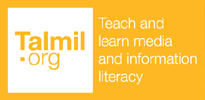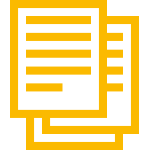

Bosnia and Herzegovina
-

RSF World Press Freedom Index 2021 (position)
58of 180
-

RSF World Press Freedom Index 2021 (score)
28.34
-

Media literacy (ranking in Europe)
34of 35
-

Media literacy (score)
19of 100
-

IREX vibrant barometer (score)
18of 40
Media landscape
The media system of Bosnia and Herzegovina is very complex, which is in a strong cause-and-effect relationship with the complicated state system. Unlike other countries in the Western Balkans, Bosnia and Herzegovina has three public services: two entity broadcasters – RTFBIH (Radio-Television of the Federation of Bosnia and Herzegovina), RTRS (Television of Republika Srpska) and one state-level broadcaster – BHRT (Bosnian-Herzegovinian Radio Television). Entity broadcasters have substantial unpaid debts towards the state-level broadcaster (1), whose functioning is extremely endangered. Foreign news agencies and affiliates of international media are a means through which foreign governments and financiers can reach and influence public opinion in B&H (2). In the same time, there is a large influence of outlets from the same speaking area, primarily Serbian tabloid media (3). The healthiest part of the media sector are online media dealing with investigative and analytical journalism (BIRN BIH, CIN, Istinomjer, Raskrikavanje), since they are less exposed to the pressures of clientelism and ethno-national divisions.
Journalists
Judging by the reports of Freedom House and Reporters Without Borders, the position of journalists in Bosnia and Herzegovina is extremely unfavorable: journalists face political pressure as well as harassment, threats, and assaults (4). They are attacked for their ethnic origins as well as what they write and defamation suits by politicians often serve to intimidate journalists and deter them from pursuing their work (5). According to the BH Journalists’ Association, about twenty cases of attacks and threats are recorded annually (6).
Audience and media literacy
According to the report of the Open Society Institute (Sofia), Bosnia and Herzegovina ranks 34th out of 35 European countries in media literacy level. (7). The results of the opinion poll conducted by Ipsos (8) show a sharp polarization of the BiH public regarding their trust in the media – half of the respondents, in sum, claim to not trust the media, while nearly as many claim they trust the media. Some respondents listed as the most trusted media outlets organizations that previous studies singled out as examples of propaganda and disinformation models.
Medias outlets

National media
Istinomjer
Istinomjer is an initiative that focuses on the promotion of the responsibility of political parties, as well as public officials. Istinomjer evaluates the statements of officials in terms of their consistency, truthfulness and fulfillment of promises they make in their public appearances.
Raskrinkavanje
Raskrinkavanje is a fact-checking website, based on objective, independent and thorough verification of media information. It monitors news from Bosnia and Herzegovina and the WB region, and, based on its methodology, checks and evaluates those whose credibility seems questionable. Raskrinkavanje is a verified member of the International Fact-Checking Network (IFCN).

Regional media
Agence France Presse (AFP)
Since 2017, AFP has been developing a fact checking service, which reviews news casted in the media and social networks. In the Western Balkans, AFP currently fact checks news in Serbia, Montenegro and Bosnia-Herzegovina, as well as on Facebook and other social media. In 2021, the press agency launched a worldwide public campaign on media literacy and basic fact checking tools.






